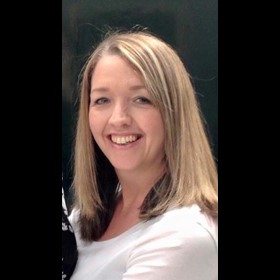The value of relational and strengths-based approaches in commissioning services
Debbie Watson, Assistant Director of Population Health, Tameside and Glossop Strategic Commission
I recently chaired our Tameside Family Nurse Partnership Advisory Board where Ellie, a graduate of FNP Tameside presented her story (password: kilogramme). Ellie described her life, her vulnerability and many adverse childhood events. Ellie and her family nurse had worked hard over two years, through ups and downs, to build and model a trusting therapeutic relationship. Ellie’s motivation for change, the belief that she could do this, her determination to provide the best for her son and her sheer resilience were humbling.
Around 3,000 babies are born in Tameside each year. Even before these children are conceived social, economic and environmental factors are at work to determine their health in adulthood. The impact and importance of the first 1001 days, from conception to the age of two, has such a wealth of evidence behind it. The conditions in which children are born, grow, live, work and age can lead to health inequalities – the unfair and avoidable differences in health status affecting the life chances of first-time young parents and their children.
Science has discovered that childhood stress can cause biological change. The consequences are surprising: from heart disease, diabetes, liver disease to mental health problems to addictive behaviour. What’s the key factor protecting against such outcomes? One of the guiding theories in the FNP programme gives us the answer: attachment. Science is teaching us what we instinctively know - that relationships are key to human health and happiness. This is especially true during childhood.
As a borough and through our partnerships, we are wholly dedicated to working with parents differently and to utilising relational and strengths based approaches, such as those embedded within Family Nurse Partnership practice and the FNP ADAPT project of which we were very supportive. Such approaches are demonstrated by Ellie’s story, which is now being used as a powerful tool to drive a cultural change in Tameside, towards a system and services that are trauma informed.
Finally, one of the greatest pleasures of commissioning the Family Nurse Partnership programme is seeing all the young women who have graduated and how they have developed into confident and independent parents. The learning from the programme has allowed us to further develop our universal services to support young parents beyond graduation. FNP has been at the heart of our ‘Grow’ model for early years, helping us to create, embed and sustain a partnership offer to improve outcomes for children and their families. We are pleased to see our Young Parents Group (suitably named by our young parents as Wrigglers and Gigglers!) thriving and we now seek to review our wider young parents pathway, modelled on the key principles and approaches of the Family Nurse Partnership.
In Tameside our children and young people are faced with multiple challenges and opportunities. The Family Nurse Partnership is a key programme which is helping our young parents to succeed. The immediate challenge for us as commissioners is how to scale up the approach of the programme, bringing our efforts and resources together to improve the outcomes that really make a difference.
